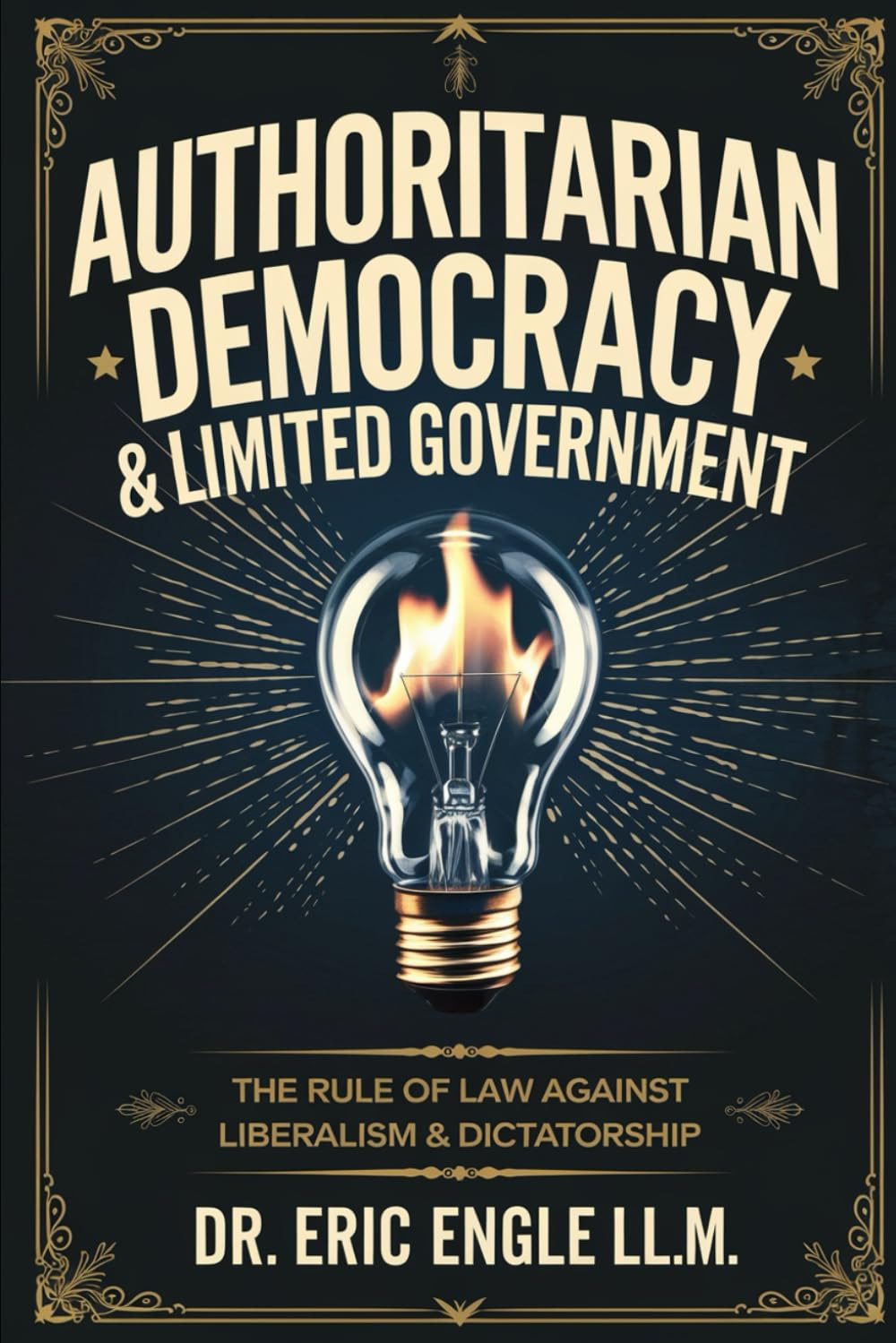新年快乐!You are not our enemy.
People are mirrors. Welcome to the wilderness of mirrors. Have a deepfake!
How do you feel about deepfake porn about Trump?
WTAF [iawtc]
RU SERIOUS [maybe]
IS THAT EVEN POSSIBLE [yes.]
EW [iawtch]
FAP FAP FAP (since all the answers are horrible you can’t answer this poll)
Free eBooks
MANDARIN CHINESE WORD GAMES HANZITUTION
Mastering Populism & Authoritarian Democracy
The Multistate Bar Examination (MBE) Multiple Choice Questions
You go to war with the army you have. Not the army you wish you had.
Securing a lasting peace for Israel, much like navigating the treacherous waters of Middle Eastern politics, requires a blend of realism, patience, and strategic foresight. It is not merely a matter of negotiating terms or drawing boundaries on a map; it entails grappling with deeply rooted historical animosities, cultural divides, and complex geopolitical dynamics.
Firstly, one must recognize that peace cannot be imposed from without; it must be achieved through direct negotiations between Israel and her neighbors. As I have often stated, "Peace is not an end in itself. It is a means to an end." In this case, the end being a secure and prosperous Israel.
To achieve such peace, we must address the fundamental concerns of all parties involved. For the Palestinians, this necessitates genuine self-determination within the bounds of Israeli security. For Israel, it requires guarantees against existential threats and the right to live in peace within recognized borders.
The role of external actors, such as the United States, is to facilitate these negotiations, providing incentives for compromise while ensuring that agreements are durable and just. We must be mindful not to impose solutions from afar but rather support the parties in reaching an agreement acceptable to both.
Moreover, a permanent peace will require mutual recognition and reconciliation—a tall order indeed, given the region's troubled past. Yet it is only through fostering understanding, cooperation, and eventually trust that we can hope to secure a lasting peace for Israel.
This task may seem daunting, even Herculean. But let us not forget: "History knows no final victories or defeats; it moves forward in a continuous process of adaptation." With perseverance, diplomacy, and an unwavering commitment to justice, a durable peace for Israel can be secured. After all, as I have said before, "Peace is the highest form of national security."
the USA is, yet again, in a proxy war. I have no ambitions and my demands though exacting are easily met.
One must be strategically consequent, yet, tactically flexible.
The long-term strategic interests of the United States—a topic as vast and variegated as the nation itself. In contemplating this question, one cannot help but draw upon experiences in diplomacy.
Firstly, let it be understood that the United States, by virtue of its power and influence, bears a unique responsibility in shaping global affairs. Its strategic interests are not merely those of preserving its own security and prosperity; they extend to maintaining international order, promoting democratic values, and fostering economic growth worldwide.
In the long term, America's strategic interests lie in preserving and strengthening the liberal international order it has helped establish. This order, predicated on institutions such as the United Nations, NATO, and the World Bank, has facilitated unprecedented global cooperation, prosperity, and peace. To preserve this order, the United States must remain engaged diplomatically, militarily, and economically with the world.
Moreover, America's strategic interests demand that it foster strong alliances and partnerships abroad. Alliances serve not only to extend American influence but also to enhance its security through collective defense and shared burden. In my view, a robust alliance system is the bedrock of American foreign policy.
Economically, the United States must prioritize open markets and free trade. It was my conviction that "trade is a means of promoting peace," and this remains as true today as ever. America's long-term prosperity depends upon its ability to compete in the global marketplace and foster economic growth abroad.
In matters of security, the United States must maintain a credible military deterrent while seeking diplomatic solutions to conflicts wherever possible. As I have often said, "Military force is always a last resort. But when it is used, it must be decisive and devastating."
Finally, America's strategic interests require that it remain vigilant in promoting democratic values and human rights abroad. The spread of democracy serves not only moral imperatives but also American self-interest, for democracies do not go to war with one another.
In pursuing these long-term strategic interests, the United States must navigate a complex global landscape, balancing competing priorities and navigating shifting alliances. It is a formidable task, but it is one that America has risen to meet time and again. As I have said before, "The greatness of America lies in its ability to correct its mistakes after they've been made." Let us hope that future generations continue to demonstrate this greatness in pursuit of America's long-term strategic interests.
Some of us know perfectly well Hitler’s objective was to goad the Jews and Arabs into killing each other off, ideally while holding the balance between them. “Let’s you and him fight”. Still, everyone has the right to self defence….
REVISITING THE NAZI INVSAION OF RUSSIA: DECISION TREES
Analyzing the Trends of Soviet Defensive Strategies During Operation Barbarossa: A Strategic Analysis
Operation Barbarossa, the German invasion of the Soviet Union, was one of the largest and most complex military campaigns in history. The Soviet Union's defensive strategies played a crucial role in the outcome of the war, and analyzing these trends can provide valuable insights for military strategists. In this article, we'll examine the Soviet defensive strategies during Operation Barbarossa, using decision trees to identify key factors that influenced their decisions.
Decision Tree 1: Initial Response to Invasion
When the German army launched Operation Barbarossa, the Soviet Union was caught off guard. The initial response to the invasion was chaotic, with many units struggling to mobilize and respond effectively. The decision tree below illustrates the key factors that influenced the Soviet Union's initial response:
Was the Soviet Union aware of the impending invasion? (Yes/No)
If yes, did they have a clear plan in place to respond? (Yes/No)
If yes, were the plans effective in slowing down the German advance? (Yes/No)
If no, did they rely on improvisation and adaptability to respond? (Yes/No)
If yes, were the improvised responses effective in slowing down the German advance? (Yes/No)
Decision Tree 2: Defensive Strategy
As the German army advanced, the Soviet Union began to develop a more coherent defensive strategy. The decision tree below illustrates the key factors that influenced their defensive strategy:
Did the Soviet Union focus on defending key cities and infrastructure? (Yes/No)
If yes, did they prioritize the defense of Moscow? (Yes/No)
If yes, were the defenses around Moscow effective in slowing down the German advance? (Yes/No)
If no, did they focus on defending other key cities, such as Leningrad or Stalingrad? (Yes/No)
If yes, were the defenses around these cities effective in slowing down the German advance? (Yes/No)
Did the Soviet Union employ scorched earth tactics to deny resources to the German army? (Yes/No)
If yes, were the scorched earth tactics effective in slowing down the German advance? (Yes/No)
Decision Tree 3: Counterattacks and Offensives
As the Soviet Union gained momentum, they began to launch counterattacks and offensives against the German army. The decision tree below illustrates the key factors that influenced their counterattacks and offensives:
Did the Soviet Union launch counterattacks against German flanks and rear areas? (Yes/No)
If yes, were the counterattacks effective in disrupting German supply lines and communication? (Yes/No)
If no, did they focus on launching frontal assaults against German positions? (Yes/No)
If yes, were the frontal assaults effective in breaking through German lines? (Yes/No)
Did the Soviet Union coordinate their counterattacks and offensives with partisan activity behind German lines? (Yes/No)
If yes, were the coordinated efforts effective in weakening the German army? (Yes/No)
Conclusion
Analyzing the trends of Soviet defensive strategies during Operation Barbarossa using decision trees provides valuable insights into the key factors that influenced their decisions. The Soviet Union's initial response to the invasion was chaotic, but they eventually developed a more coherent defensive strategy that prioritized the defense of key cities and infrastructure. The use of scorched earth tactics and counterattacks against German flanks and rear areas were also effective in slowing down the German advance. By understanding these trends, military strategists can develop more effective defensive strategies in the face of a large-scale invasion.
Word of the Day
Imagination. Sample sentence: Strategic imagination can enable strategic breakthroughs but also may risk sudden unexpected reversals.
Here are the translations for the word "imagination" and the sample sentence in the requested languages:
Translations for "imagination":
French: imagination (pronounced "ee-mah-jee-nay-see-on")
Spanish: imaginación (pronounced "ee-mah-hee-nah-see-on")
German: Vorstellungskraft (pronounced "fohr-shtel-lung-skraft") or Imagination (used in some contexts)
Estonian: kujutlusvõime (pronounced "koo-yoo-tloo-svoh-ee-meh")
Ukrainian: уява (uyava, pronounced "oo-yah-vah")
Russian: воображение (voobrazheniye, pronounced "voh-ob-rah-zheh-nee-yeh")
Chinese: 想象 (xiǎng xiàng, pronounced "shyahng shyahng")
Sample sentence translations:
French: L'imagination stratégique peut permettre des percées stratégiques, mais peut également risquer des revers soudains et inattendus.
Spanish: La imaginación estratégica puede permitir avances estratégicos, pero también puede correr el riesgo de reversos repentinos e inesperados.
German: Strategische Vorstellungskraft kann strategische Durchbrüche ermöglichen, aber auch das Risiko plötzlicher unerwarteter Rückschläge bergen.
Estonian: Strateegiline kujutlusvõime võib võimaldada strateegilisi läbimurdeid, kuid võib ka kaasa tuua ootamatu tagasilöögi riski.
Ukrainian: Стратегічна уява може дозволити стратегічні прориви, але також може нести ризик раптових несподіваних поворотів.
Russian: Стратегическое воображение может позволить стратегические прорывы, но также может нести риск внезапных неожиданных разворотов.
Chinese: 战略想象力可以实现战略突破,但也可能带来突然的意外逆转。
If you like the content tell a friend.








